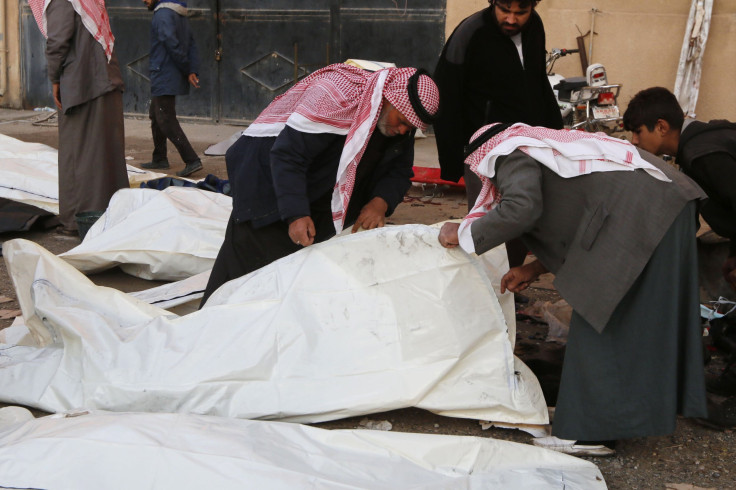Coalition And Assad Planes Target ISIS Strongholds In Wave Of Attacks

Within the past week, both Syrian President Bashar Assad’s air force and U.S.-led coalition planes have targeted the Islamic State group’s strongholds, killing dozens of extremists. The uptick in airstrikes suggests the Syrian regime and the coalition could be coordinating their efforts to defeat the Sunni militant group.
In the past 24 hours alone, the U.S.-led coalition launched 30 airstrikes on the extremist group formerly known as ISIS in Raqqa, the militants’ de facto headquarters, according to the Syrian Observatory for Human Rights, a monitoring organization based in the U.K. The coalition hit the 17th Division, a Syrian army base that the Islamic State group seized in July, in their attacks Sunday. The monitoring group did not confirm how many militants were killed in the airstrikes in Raqqa.
The U.S.-led airstrikes in Raqqa over the weekend came just days after Assad's forces attacked the city. Based there, the anti-militant, activist group Raqqa Is Being Slaughtered Silently said the airstrikes were random and killed at least 36 civilians.
Meanwhile, coalition airstrikes and clashes killed at least 50 ISIS militants in Kobani, a northern Syrian town that has witness intense fighting between ISIS and Kurdish forces. The Syrian Observatory for Human Rights reported that five ISIS militants blew themselves up in an attempt to kill Kurdish fighters.
The Kurdish forces fought the Sunni militant group close to the Turkish border. Some clashes spilled over into Turkey for a while, but the Turkish military eventually gained control of its land and pushed the fighting back into Syrian territory.
The attacks on the Islamic State group in the past week indicate a growing intensity within the U.S.-led coalition to hit the Sunni militant group where it is strongest. It is unclear whether there is any direct coordination between coalition planes and the Assad regime, but accounts by several activist and monitoring groups in the country suggest the two parties are working together.
U.S. President Barack Obama has come under increasing pressure from members in Congess to explain if the U.S. administration is in fact working with Assad. Press statements by senior U.S. officials have denied any coordination between the two parties and have called for Assad’s removal, but actions on the ground do not suggest the U.S. and its allies are actively working to oust him from power, despite his being accused of crimes against humanity.
© Copyright IBTimes 2025. All rights reserved.





















